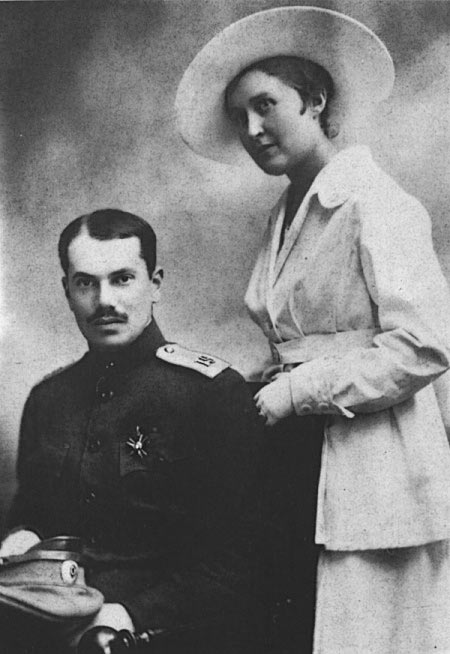|
Days Of The Turbins
''The Days of the Turbins'' (russian: Дни Турбиных, translit=Dni Turbinykh) is a four-act play by Mikhail Bulgakov based upon his novel ''The White Guard''. It was written in 1925 and premiered on 5 October 1926 in Moscow Art Theatre (MAT), directed by Konstantin Stanislavsky. In April 1929 the production was cancelled as a result of severe criticism in the Soviet press. On 16 February 1932, resulting from the direct interference of Joseph Stalin, it was re-started and continued until June 1941, to considerable public acclaim. It ran for 987 performances in the course of these ten years. There are three versions of the play's text. The first was written in July–September 1925. The title ''The Days of the Turbins'' was also used for the novel itself, the latter's Paris (1927, 1929, Concorde) edition was titled ''The Days of the Turbins (The White Guard)''. The play's second version (never published in Russian) was translated into German and first came out in Munich i ... [...More Info...] [...Related Items...] OR: [Wikipedia] [Google] [Baidu] |
Mikhail Bulgakov
Mikhail Afanasyevich Bulgakov ( rus, links=no, Михаил Афанасьевич Булгаков, p=mʲɪxɐˈil ɐfɐˈnasʲjɪvʲɪtɕ bʊlˈɡakəf; – 10 March 1940) was a Soviet writer, medical doctor, and playwright active in the first half of the 20th century. He is best known for his novel ''The Master and Margarita'', published posthumously, which has been called one of the masterpieces of the 20th century. He is also known for his novel ''The White Guard''; his plays '' Ivan Vasilievich'', ''Flight'' (also called ''The Run''), and ''The Days of the Turbins''; and other works of the 1920s and 1930s. He wrote mostly about the horrors of the Russian Civil War and about the fate of Russian intellectuals and officers of the Tsarist Army caught up in revolution and Civil War.Bulgakov's biogra ... [...More Info...] [...Related Items...] OR: [Wikipedia] [Google] [Baidu] |
Anton Denikin
Anton Ivanovich Denikin (russian: Анто́н Ива́нович Дени́кин, link= ; 16 December Old_Style_and_New_Style_dates">O.S._4_December.html" ;"title="Old_Style_and_New_Style_dates.html" ;"title="nowiki/>Old Style and New Style dates">O.S. 4 December">Old_Style_and_New_Style_dates.html" ;"title="nowiki/>Old Style and New Style dates">O.S. 4 December1872 – 7 August 1947) was a Russian Lieutenant General in the Imperial Russian Army (1916), who later served as the Deputy Supreme Ruler of Russia, Supreme Ruler of the Russian State during the Russian Civil War of 1917–1922. He was also a military leader of South Russia (as commander in chief). His slogan was “Russia - One and Indivisible”. Childhood Denikin was born on 16 December 1872, in the village of Szpetal Dolny, part of the city Włocławek in Warsaw Governorate of the Russian Empire (now Poland). His father, Ivan Efimovich Denikin, had been born a serf in the province of Saratov. Sent as a rec ... [...More Info...] [...Related Items...] OR: [Wikipedia] [Google] [Baidu] |
Alexander Afinogenov
Alexander Nikolayevich Afinogenov (russian: Алекса́ндр Никола́евич Афиноге́нов) (, Skopin – 29 October 1941, Moscow) was a Russian and Soviet playwright. Biography Alexander was born in the town of Skopin, in Ryazan Oblast. He joined the CPSU in 1922. He obtained a degree in journalism in 1924, the year that he published his first play. In the 1920s he was a member and later director of the Proletkult's theatre. He turned away from the Proletkult in the late 1920s, and became in the early 1930s the chief drama theoretician of the Russian Association of Proletarian Writers. He wrote 26 plays, but he is best known for ''Fear'' (1931) and ''Mashenka'' (1941). His work was attacked in 1936 and he was expelled from the CPSU in 1937, but he was never purged, and was rehabilitated in 1938. He continued writing until his death in a German air raid in 1941. He was married with American ballerina Jenny Marling (Schwartz). Her first husband was John Bovingdo ... [...More Info...] [...Related Items...] OR: [Wikipedia] [Google] [Baidu] |
Stalin Before 1929
Joseph Vissarionovich Stalin (born Ioseb Besarionis dze Jughashvili; – 5 March 1953) was a Georgian revolutionary and Soviet political leader who led the Soviet Union from 1924 until his death in 1953. He held power as General Secretary of the Communist Party of the Soviet Union (1922–1952) and Chairman of the Council of Ministers of the Soviet Union (1941–1953). Initially governing the country as part of a collective leadership, he consolidated power to become a dictator by the 1930s. Ideologically adhering to the Leninist interpretation of Marxism, he formalised these ideas as Marxism–Leninism, while his own policies are called Stalinism. Born to a poor family in Gori in the Russian Empire (now Georgia), Stalin attended the Tbilisi Spiritual Seminary before joining the Marxist Russian Social Democratic Labour Party. He edited the party's newspaper, ''Pravda'', and raised funds for Vladimir Lenin's Bolshevik faction via robberies, kidnappings and protection rac ... [...More Info...] [...Related Items...] OR: [Wikipedia] [Google] [Baidu] |

.jpg)
.png)
